


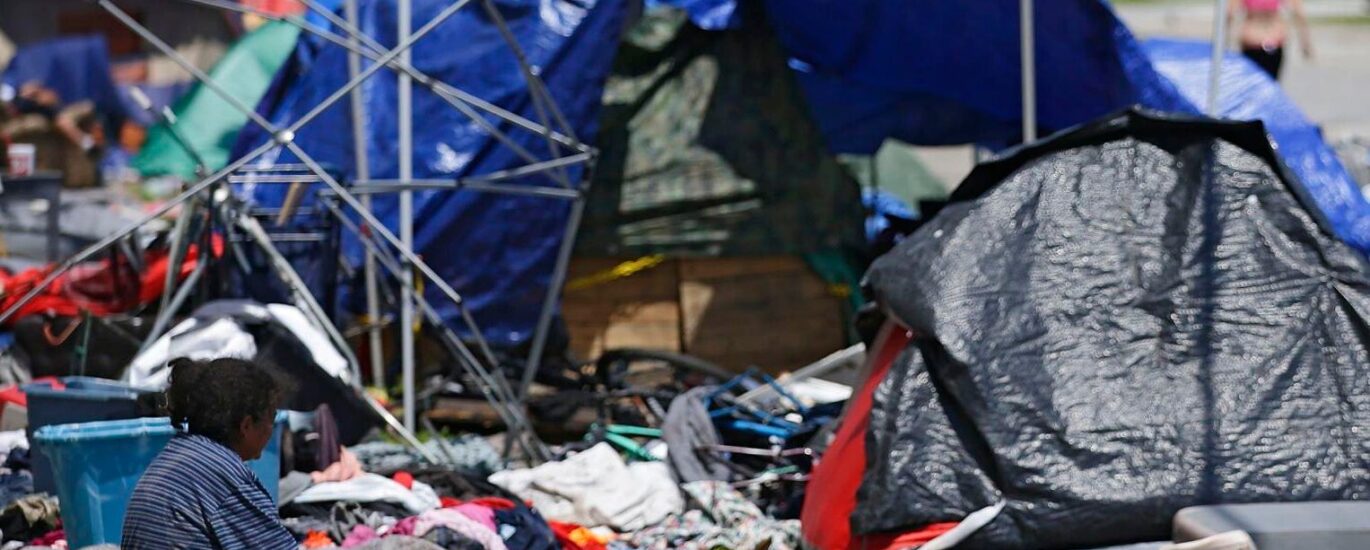
This has been one of the themes that compels me the most out of all the Fr8 World Logi$tix blog pieces. As we interact with people on a daily basis at the most basic level of need, especially in our profession, we have all witnessed it unfold in front of our very eyes. What then can we do? What personal actions can we take to truly impact someone’s life? Let’s first go over some of the factors that led to our current situation.
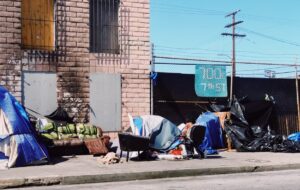 Affecting all ethnic groups and age ranges, the primary foundational answer to the issue of homelessness is housing. The current housing crisis and homelessness are caused by a lack of affordable housing and a small number of housing aid services. Due to the lack of cheap accommodation, many people have been forced to become homeless and an increasing number of people are now at risk of doing so due to high rent burdens, overcrowding, and poor housing conditions.
Affecting all ethnic groups and age ranges, the primary foundational answer to the issue of homelessness is housing. The current housing crisis and homelessness are caused by a lack of affordable housing and a small number of housing aid services. Due to the lack of cheap accommodation, many people have been forced to become homeless and an increasing number of people are now at risk of doing so due to high rent burdens, overcrowding, and poor housing conditions.
Affordable housing has not always been so severely lacking in the United States. During the 1970s and 1980s, federal initiatives for affordable housing underwent significant losses. The development of long-term supportive housing for those who are homeless on a regular basis owing to a disability or medical conditions is a major area of study today. But the lengthy process of gathering money from various sources, political wrangling, and the slow pace of municipal agencies make it difficult to develop affordable housing in most cities. Because of this, it is taking too long to build enough affordable housing to put an end to homelessness.
The criminalization of homelessness refers to policies that forbid actions necessary for maintaining life, such as eating, sitting, sleeping, and/or camping in public places. Criminal sanctions are included in these ordinances for transgressions of these laws. There are various forms of criminalization, including:
Sadly, for the past 25 years, cities all throughout the country have penalized individuals who are compelled to perform life-sustaining tasks on the streets and in public areas, despite the fact that many towns lack appropriate affordable housing and shelter space. In the end, a lot of these strategies aim to relocate homeless people out of public view and occasionally even outside of a certain city.
Measures that criminalize behaviors needed to survive on the streets and homelessness are ineffective at ending homelessness. Many people face increased obstacles to finding new housing as a result of these fines and convictions, which also frequently fuel prejudice against those who are homeless.
Local governments have been strongly cautioned by the US Interagency Council on Homelessness not to pass laws criminalizing homelessness since they do not promote access to resources, disadvantage service providers, and erect new hurdles for homeless persons.
 In any given month, 44% of American residents who are homeless and of working age and condition are engaged in some form of paid job; nonetheless, the majority do not earn enough to find and buy permanent homes. A permanent or temporary debilitating disability prevents many homeless persons from working and earning a living.
In any given month, 44% of American residents who are homeless and of working age and condition are engaged in some form of paid job; nonetheless, the majority do not earn enough to find and buy permanent homes. A permanent or temporary debilitating disability prevents many homeless persons from working and earning a living.
The secret to establishing and sustaining housing stability is meaningful and long-lasting employment. Homelessness is frequently caused by underemployment, unemployment, and poor pay compared to rent, which puts millions of families in danger. The search for and maintenance of employment might be difficult for those who are homeless.
In order to guarantee that they have the resources necessary for long-term stability and success, it is crucial to connect those who are homeless or at risk of becoming homeless with job training and placement programs. People are more likely to be able to keep their jobs if access to work supports like childcare subsidies and transportation assistance is made easier.
 Each year, thousands of families experience homelessness, with families with children making up one of the fastest-growing segments of the homeless population. Homelessness is not just a problem that affects single men and women.
Each year, thousands of families experience homelessness, with families with children making up one of the fastest-growing segments of the homeless population. Homelessness is not just a problem that affects single men and women.
Family homelessness is caused by a variety of circumstances, such as the difficulty of parenting children alone, the breakdown of social networks, and shifting family demographics. These factors are more critical to the problem of family homelessness. Affordable housing is lacking and The National Low Income Housing Coalition reports that there is a severe lack of affordable housing in the United States as well as rising rents and stagnant salaries. There are just 31 affordable housing options for every 100 renters with extremely low incomes.
Statistics indicate that 34% plus of all single-parent households and 17% of all two-parent families in America are below the poverty line. One-fifth of all US occupations do not pay enough to keep a family of four out of poverty, which means that many families do not receive appropriate salaries. On average, families require a household income that is double the federal poverty level in order to cover their most basic necessities.
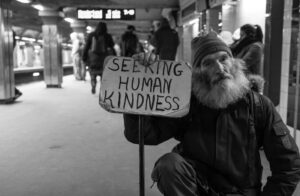 People who have experienced domestic violence are more likely to become homeless or have trouble finding accommodation because of their particular and frequently urgent circumstances. Families fleeing domestic violence could have a history of having trouble renting an apartment or finding work. In addition, some people find it difficult to execute child support and alimony orders because they need to
People who have experienced domestic violence are more likely to become homeless or have trouble finding accommodation because of their particular and frequently urgent circumstances. Families fleeing domestic violence could have a history of having trouble renting an apartment or finding work. In addition, some people find it difficult to execute child support and alimony orders because they need to
stay away from their abusers for their own protection.
The assistance needed to handle the rising numbers of homeless families is not keeping up with the challenge. Virtually every aspect of family life is disrupted by homelessness, which also harms the mental and physical health of family members, interferes with children’s learning and development, and frequently leads to family separation. Families who have experienced homelessness are much more likely to experience separation than families who have not.
Elderly people are rarely the first to come to mind when we think of homelessness. Elderly people, despite their growing numbers, are still mostly ignored.
Studies conducted across the United States have revealed a definite increase trend in the percentage of “older” people (aged 50–64) living on the streets. This is a group that routinely evades the safety nets of the government. Although they are too young to be eligible for Medicare, their physical health may gradually deteriorate due to inadequate diet and difficult living conditions, making them appear much
older.
The current homeless population contains a comparatively small proportion of “elder” (65 and older) homeless people. This lower percentage may be attributable to the greater accessibility of effective safety net programs that only take effect at a specific age, such as subsidized housing, medicare and Social Security.
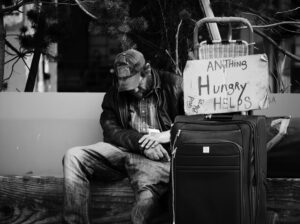 Veterans make up between one-fourth and one-fifth of all homeless persons in America, a number that is far too high. Three times as many veterans are battling with exorbitant rent obligations and are consequently more likely to become homeless.
Veterans make up between one-fourth and one-fifth of all homeless persons in America, a number that is far too high. Three times as many veterans are battling with exorbitant rent obligations and are consequently more likely to become homeless.
Veterans face a unique mix of difficulties both while serving and after they return, which creates difficulties when attempting to address veteran homelessness. Veterans are more likely to experience sexual trauma, severe brain injury, and post-traumatic stress disorder (PTSD), all of which increase their risk of homelessness. Numerous veterans are also thought to be in danger of becoming homeless due to poverty, a lack of support from family and friends, substance abuse or mental health problems, and unstable living situations.
So, returning to our original question, how CAN we assist? Here are a few simple things you can do from anywhere that will help you take action and add lasting value to the people you interact with. Even though it may appear that the world of the homeless is extremely remote from your own, it is actually pretty close. Any of us may descend into complete despair if we lost our jobs, our spouses or children were sick or died, or if we suffered a terrible physical impairment. People in shelters across America have lost their homes and have been abandoned by family and friends due to personal misfortunes.
How can you assist them? The tiniest actions can occasionally make a big difference.
Understand who the homeless are.
Defeat the myths surrounding the destitute. Learn about the various causes of homelessness and keep in mind that each circumstance is different. Finding out what they need and treating each person as an individual is one of the first stages in providing assistance. Observe them and engage with them. The majority are attention-starved.
Respect the homeless as individuals, they are people too.
Treat the homeless with the same decency and respect that you would extend to your friends, family, and coworkers. Treat them in a way that you
would like to be treated if you were in need of help.
Show kindness.
If we respond to the homeless with kindness rather than ignoring or dismissing them, we can significantly improve their quality of life. Try to be friendly and smile – a handshake or a hug, and look them directly in the eye, so they know you SEE them.
Bring extra food.
Taking a few extra sandwiches with you when you go out is all it takes. Offer a snack to anyone you see asking for change as you pass, or invite that person to a meal. Pack a little extra if you plan to bring a lunch. Order something to take home with you if you eat at a restaurant, and having bottled water in your rig is always a good call.
Donate clothes.
Give directly to the person who you see needs them the most, and keep an eye out for those clothes you no longer wear the next time you perform your spring or fall cleaning. If these items are in good condition, collect them together and give them to charities that house the homeless.
Donate food items.
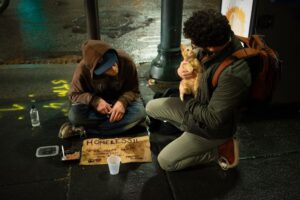 Fill a bag with nonperishable food items and give it to a local food drive. Organize a food drive if there isn’t one already in your neighborhood. Ask the soup kitchens, shelters, and homeless organizations in your area what kinds of food donations they prefer. And please don’t forget the puppy chow and meow-mix for our furry little friends!
Fill a bag with nonperishable food items and give it to a local food drive. Organize a food drive if there isn’t one already in your neighborhood. Ask the soup kitchens, shelters, and homeless organizations in your area what kinds of food donations they prefer. And please don’t forget the puppy chow and meow-mix for our furry little friends!
Think of the Kiddos.
If they have any items at all, the kids in shelters don’t have many toys. What little money homeless parents have must be used for more immediate needs like food and clothing. These kids so frequently have nothing to play with and nothing to keep them busy. Toys, books, and games can be given to family shelters to provide to children who are homeless. Ask your friends and coworkers to buy and wrap presents for homeless youngsters for Christmas or Chanukah.
Volunteer your TIME.
Although it may be difficult, please try to give some of your time, which is your most valuable resource. Volunteers are essential to the success of shelters; they sign people in, serve meals, and advise the homeless on where to find social assistance. A shelter for the homeless might be as simple as a dry place to sleep or as complex as a step toward self-sufficiency. Your skills, professional services, and even hobbies could be the spark that changes the direction of someone’s life.
And last but certainly not least, you can even offer good old-fashioned hard cash, yep. Giving money is one of the most straightforward ways to assist the homeless. Merely a dollar no longer has any significance; instead, make it a $5 or a $10. Giving to organizations that help the homeless or just tithing to your church (while saying a prayer) has a significant impact on BOTH of you as well.

We HOPE (a confident expectation) that this blog article will have an impact on you in a way that will inspire you to reach out and help someone in need just in time.
From all of us at Fr8 World Logi$tix, thank YOU for reading.
To learn more, visit https://fr8worldlogistix.com/.
Written by: Fr8 World Logi$tix.